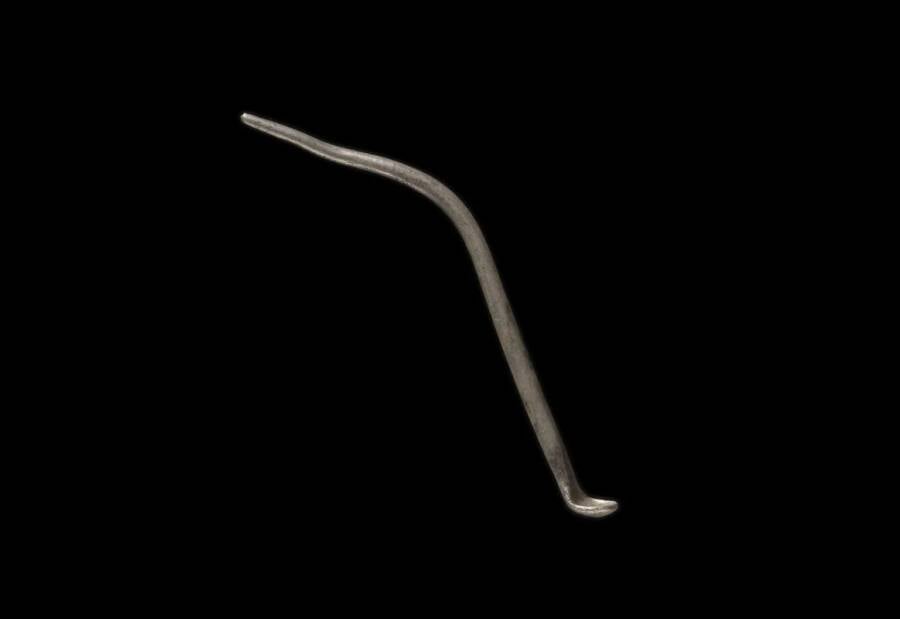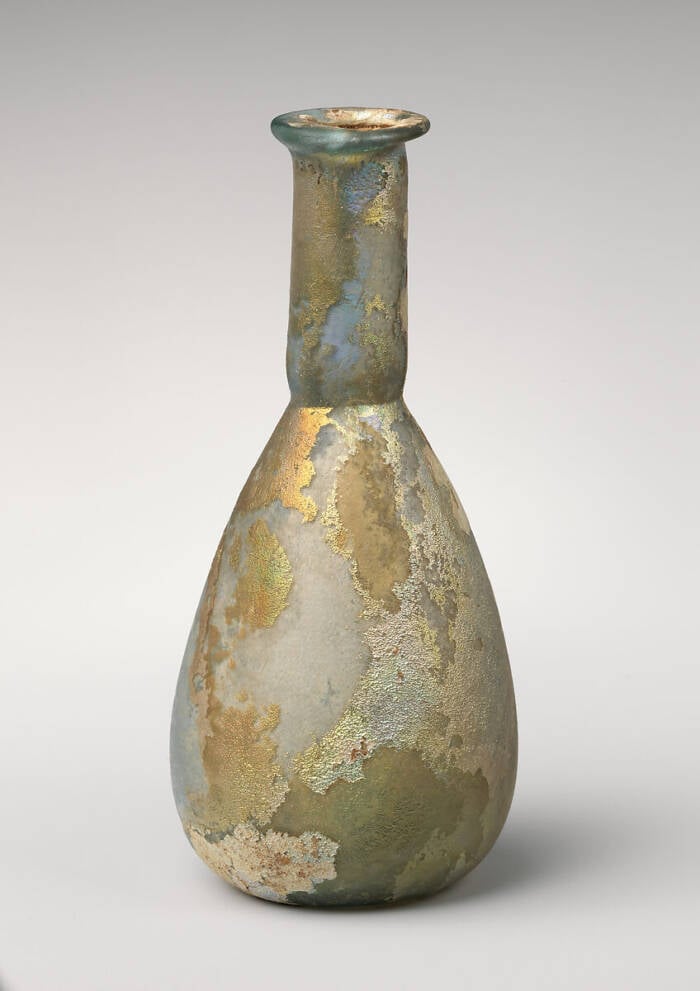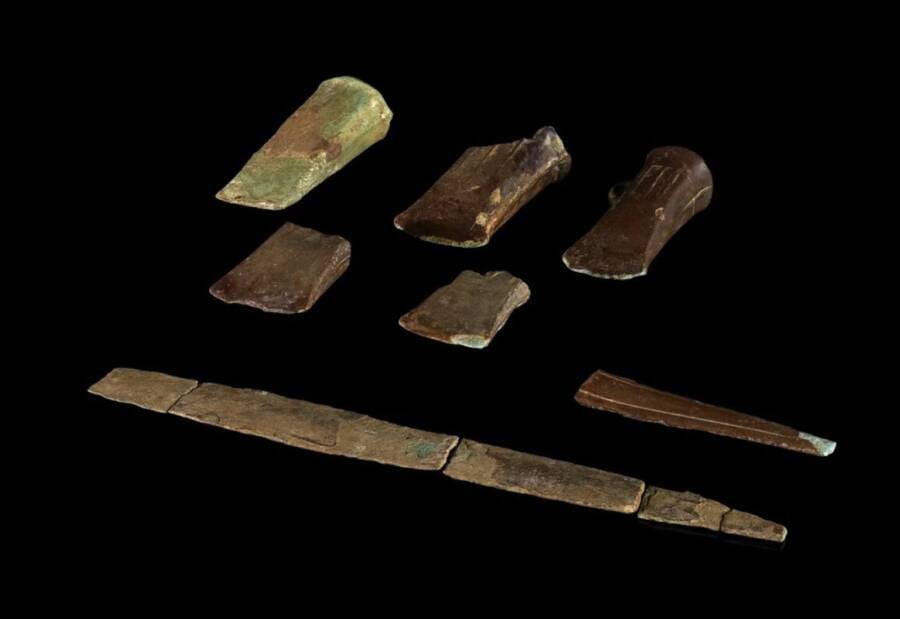Known as a ligula, this unusual object would have been used to extract cosmetics, perfume, or medicine from long-necked bottles.

Museum WalesThe Roman toilet spoon may have served a number of different purposes in ancient Britain.
Valentinas Avdejevas was walking through the Vale of Glamorgan in South Wales in June 2020, sweeping his metal detector over the ground, when he suddenly got a hit. Avdejevas had come across a Roman toilet spoon made of silver, a curious ancient object with multiple purposes.
Now, the Roman toilet spoon has been designated as a treasure in Wales under the Treasure Act 1996, along with other items found recently in the Vale of Glamorgan. So what exactly is this unusual object?
The Roman Toilet Spoon Found In Wales
After his discovery, Avdejevas reported his find to the Portable Antiquities Scheme for Wales (PAS Cymru). Though it was bent in two places, the object was quickly identified as a Roman ligula, or a Roman toilet spoon.
Made of silver, and originally straight with a small bowl at one end, the toilet spoon was a multipurpose tool. As Heritage Daily reports, people used them to extract perfume or cosmetics from long-necked bottles.

Metropolitan Museum of ArtA Roman perfume bottle from the first century C.E. A Roman ligula could have been used to extract perfume from a long-necked bottle like this one.
A Roman ligula could also be used to extract and apply medicine. Because this toilet spoon is made of silver — and not copper alloy like other similar objects — it’s very possible that it was used for this purpose. Silver has antimicrobial properties and is effective against bacteria, fungi, and viruses.
As Arkeo News notes, the silver Roman toilet spoon found by Avdejevas was judged to be a “treasure” under the Treasure Act 1996 because it is more than 300 years old and contains more than 10 percent precious metal.
It’s also a treasure in another sense. As the Museum Wales notes, the toilet spoon “contributes valuable archaeological evidence of medical knowledge and personal hygiene practices in Roman western Britain.”
What’s more, the toilet spoon isn’t the only “treasure” that metal detectorists have found in the Vale of Glamorgan in recent years.
Other Fascinating Objects Discovered At The Vale Of Glamorgan
A year before Valentinas Avdejevas discovered the Roman toilet spoon, another metal detectorist named Mark Herman stumbled across a stunning Bronze Age hoard, also in the Vale of Glamorgan.
He discovered seven bronze artifacts: fragments from two bronze swords, and five bronze socketed axes. These items have been dated to around 1000 to 800 B.C.E., or the Late Bronze Age.

Museum WalesAnother metal detectorist stumbled upon a Bronze Age hoard in the Vale of Glamorgan.
“This hoard is unusual as it contains fragments from two swords, one of which is a blade tip fragment with decorative grooves which was made in north-western France,” Chris Griffiths, a PhD researcher with Amgueddfa Cymru – Museum Wales and the University of Reading, told the museum.
He added: “This small sword fragment therefore forms a key part of a much wider story, connecting those people who lived in Pendoylan Community with those who lived in north-western France, around 3,000 years ago.”
These Bronze Age items, the silver Roman ligula, and other treasures described by the Wales Museum, will soon make their way to other institutions. From toilet spoons to swords, they all paint a fascinating picture of what life was like hundreds of years ago in Wales.
After reading about the silver Roman toilet spoon found in Wales, look through these fascinating facts about life in ancient Rome. Or, discover the stories of some of the most stunning Roman ruins outside of Italy.





